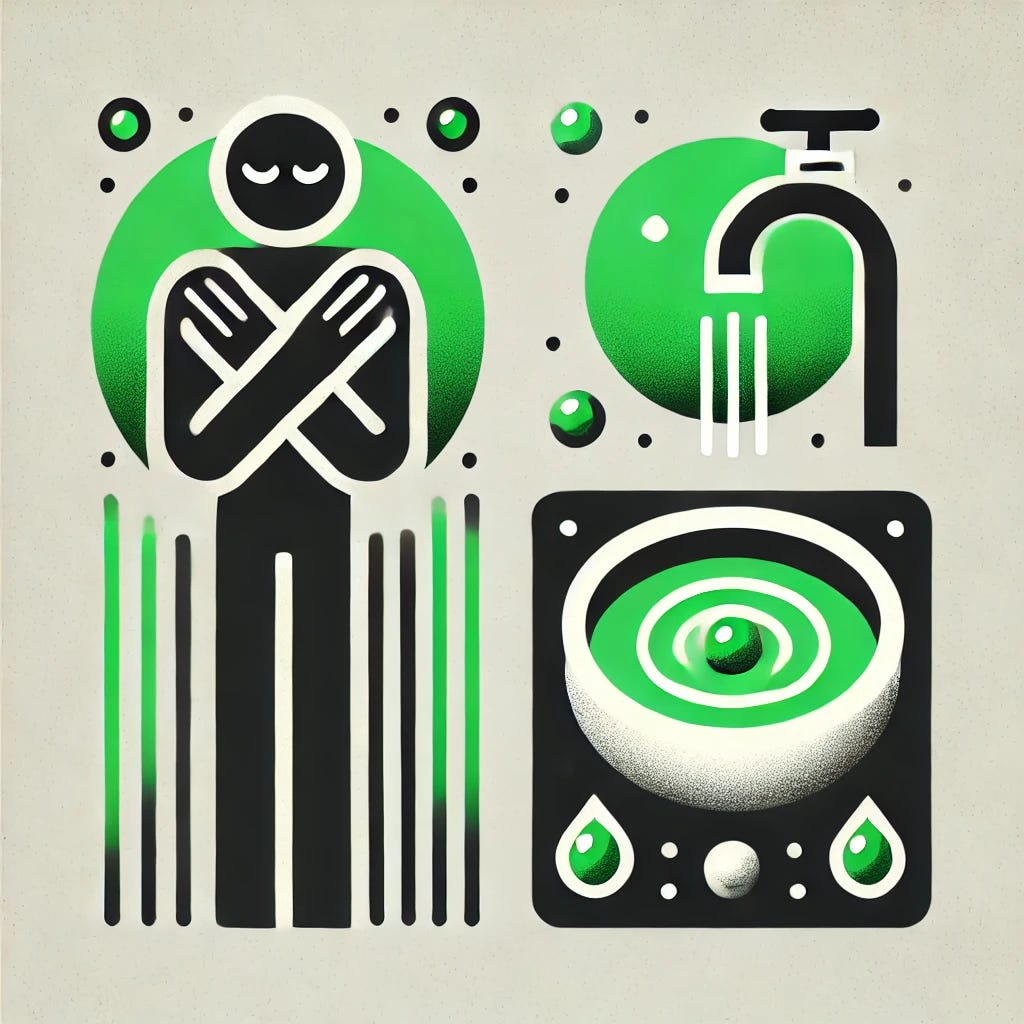Introduction
Remember Dr. Bruce Banner? Brilliant physicist, seven PhDs, genius-level intellect. But when stress hits - when his heart rate rises and emotions surge - all that intelligence vanishes.
In its place: the Hulk.
Raw emotion, primitive responses, zero access to those seven PhDs.
While most of us don't turn green, this famous transformation illustrates a startling truth about human intelligence: Under stress, even the smartest people can lose access to up to 70% of their cognitive capacity.
Their IQ doesn't drop - but their ability to access their intelligence does.
The Intelligence Paradox
Decades of neuroscience research shows us something fascinating: When your stress levels rise, blood literally leaves your prefrontal cortex - the thinking part of your brain - and flows to more primitive areas designed for survival. This isn't a glitch; it's a feature of human consciousness that served us well for millennia. The challenge? Your body can't tell the difference between a critical presentation and being chased by a predator.
This explains why that brilliant analyst freezes during presentations. Why the veteran CEO makes a catastrophic decision under pressure. Why experienced professionals miss obvious solutions when stakes are high.
The Three Pillars of Cognitive Access
1. Physiological State: The Body-Brain Connection
Your body has specific thresholds that determine your access to higher cognitive functions. When your breathing quickens, heart rate rises, and muscles tense, you're losing access to your full cognitive capacity. The irony? The more you need your intelligence, the harder it becomes to access it.
Think about the last time you had to make a critical decision under pressure. Did you notice your breathing becoming shallow? Your shoulders tensing? These physical responses directly impact your ability to think clearly. It's not just metaphorical - it's physiological.
2. Emotional Regulation: The Heart of Intelligence
Have you noticed how impossible it is to think clearly when emotionally triggered? That's because emotion and cognition are intimately linked. Your ability to regulate emotional states directly impacts your access to intelligence.
Research in affective neuroscience shows that emotional states create distinct neural patterns that either enable or inhibit access to different parts of the brain. When you're emotionally flooded, it's like trying to solve a complex equation while someone's blasting heavy metal music in your ears - technically possible, but practically impossible.
3. Environmental Conditions: The Context of Cognition
High stakes, time pressure, important decisions - these create the perfect storm for cognitive shutdown. Years of expertise count for nothing when your system is overwhelmed. This is why even seasoned professionals can make rookie mistakes in high-pressure situations.
Your brain is constantly scanning your environment for threats. When it perceives danger (real or imagined), it prioritises survival over sophisticated thinking. This made perfect sense when threats were primarily physical. In today's world, where threats are often social or professional, this same system can work against us.
Three Practical Techniques for Restoring Cognitive Access
These techniques might seem odd at first, but they're based on how your nervous system processes safety signals:
1. The Shoulder Cross
While taking slow breaths, cross your arms, placing hands on opposite shoulders. Gently stroke down your arms. This bilateral stimulation activates your parasympathetic nervous system. The combination of touch and symmetrical movement helps regulate your nervous system, making it easier to access your higher cognitive functions.
2. The 16-Second Reset
Inhale for 4 seconds, hold for 4, exhale for 4, hold for 4. This rhythm directly impacts vagal tone, helping restore cognitive function. This specific pattern has been shown to synchronise heart rate variability, a key indicator of stress resilience.
3. The Cold Splash
Run cold water over your wrists for 30 seconds. The temperature shock to these pulse points triggers a parasympathetic response, literally shifting blood flow back to your prefrontal cortex. This works because your wrists contain major blood vessels close to the skin surface, making them efficient points for temperature-based regulation.
The Higher Development Framework
Intelligence isn't just about processing power - it's about accessibility. The ability to see situations from multiple angles, hold complexity, and respond appropriately requires a regulated nervous system.
This more complex functioning requires a fully blood-supplied neocortex, and it’s is why some of the most intelligent people can make surprisingly poor decisions when their system is dysregulated, and why emotional regulation is a super-power.
Building Cognitive Resilience
Start noticing your state changes. What triggers them? What does it feel like in your body? This awareness alone can help you catch dysregulation before it takes over. Keep a simple log of situations where you felt your intelligence was compromised.
Look for patterns in:
Time of day
Physical state (hungry, tired, etc.)
Environmental factors
Social context
From Reaction to Response
The key isn't preventing all stress - it's developing the capacity to handle more complexity without losing access to your intelligence. Every time you catch yourself starting to dysregulate and choose to stay present, you're building this capacity.
Practice in low-stakes situations. Use the techniques when you're only mildly stressed. This builds the neural pathways that make the techniques more effective when you really need them.
A New Understanding of Intelligence
Traditional measures of intelligence focus on capacity - how much you can process, how quickly you can solve problems.
But what if we started measuring accessibility instead?
How consistently can you access your intelligence under varying conditions?
Next Steps
Try this: Next time you feel the pressure rising, pause.
Take one conscious breath.
Remember - you're not actually fighting a predator. You're just giving a presentation, making a decision, or handling a challenge.
You can keep your thinking brain online using the tools above.
Notice which of the three techniques works best for you. Different people respond better to different approaches.
The key is having multiple tools in your toolkit.
After all, in today's complex world, we need leaders who can think clearly when the stakes are high.
We need professionals who can access their full intelligence under pressure.
We need fewer Hulks and more Banners who've learned to work with their nervous system rather than against it.
Anand
---
This article was inspired by insights from a live Developmental Mastery session on Intelligence and Wisdom delivered in March 2023, where we explored how to access to intelligence despite our varying states, and how understanding this can transform our capacity for clear thinking and wise action.
Want to dive deeper into this topic?
Join the next upcoming live free Saturday Coaching Club session (click for full details) where we’ll explore these mindsets further and where you can see these and other techniques demonstrated in practice, within a supportive group environment.












I love the section on practical techniques! I've often found that emotional states can interfere with my ability to respond wisely to a situation.
Question: could the body's emotional and physical response to situations also be considered a form of "intelligence?" In other words, "intelligence" could be defined not only in terms of computational power and access to computational power but, as a matter of integrating the abilities of brain, gut, and heart in skillful ways?
What do you think?